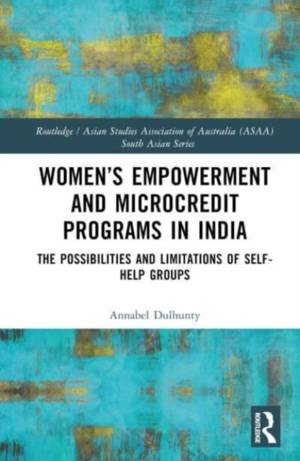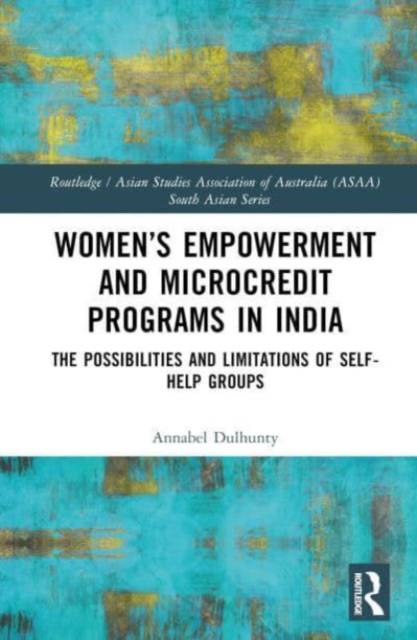
- Retrait gratuit dans votre magasin Club
- 7.000.000 titres dans notre catalogue
- Payer en toute sécurité
- Toujours un magasin près de chez vous
- Retrait gratuit dans votre magasin Club
- 7.000.0000 titres dans notre catalogue
- Payer en toute sécurité
- Toujours un magasin près de chez vous
Women's Empowerment and Microcredit Programmes in India
The Possibilities and Limitations of Self-Help Groups
Annabel DulhuntyDescription
Women's Empowerment and Microcredit Programs in India examines the value of microcredit-based self-help groups (SHGs) for women in India and provides an alternative model for women's empowerment programming.
The microcredit sector continues to boom globally - with private investors, governments and multilateral financial institutions all investing substantial amounts in self-help group programming. Nowhere is this more evident than in India, where the industry has further been deregulated in recent years. Much of the rationale for increased investment in microcredit is based on the idea that it improves 'women's empowerment'. But is this true? Researchers have fiercely debated the value of microcredit programs for women, with some arguing that it is exploitative, and others contending that it is empowering. This book provides new insights into women's empowerment and microcredit programming, elaborating on the themes of power, dignity, mobility and solidarity. It takes a nuanced view of the complexities surrounding self-help group programming and women's empowerment and argues that the model of microcredit self-help group programming is key to whether it helps or harms women.
By focusing on the experiences and voices of microcredit self-help group members in West Bengal, India, this book elaborates on the idea of microcredit models existing on a continuum, from 'smart economics' to more holistic feminist versions of programming. It will be of interest to scholars in development studies, anthropology, sociology, gender studies and public policy and Asian Studies.
Spécifications
Parties prenantes
- Auteur(s) :
- Editeur:
Contenu
- Nombre de pages :
- 152
- Langue:
- Anglais
- Collection :
Caractéristiques
- EAN:
- 9781032411316
- Date de parution :
- 21-08-23
- Format:
- Livre relié
- Format numérique:
- Genaaid
- Dimensions :
- 156 mm x 234 mm
- Poids :
- 408 g

Les avis
Nous publions uniquement les avis qui respectent les conditions requises. Consultez nos conditions pour les avis.






